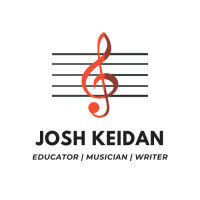From the dawn of man, music has been an integral part of culture. Music affects people on an emotional and physical level, lifting spirits, bringing people together, and expressing internal and deep-rooted emotions. Recently, studies have shown that learning to play an instrument can be healthy and beneficial for cognitive growth.
Learning to play an instrument at any age can help cognitive function. However, this is especially beneficial in children as their cognitive functions are still developing. Children have a larger capacity for learning than most adults, and playing an instrument has been proven to help with dyslexia. Because the parts of the brain that are exercised when playing music or reading are related, learning an instrument helps develop and strengthen communication and reading skills. It can also aid in hearing loss that is a result from aging.
Playing an instrument touches on three of the five major senses. Touch, hearing, and vision are affected by playing an instrument, resulting in better hand-eye coordination. Along with that, brain scans have been able to detect a marked difference in the brains of those that have learned a musical instrument. The actual structural differences increase reaction times and can even stave off the development of dementia. Learning to play an instrument has also been beneficial to the increase in the brain’s executive function. This includes problem solving skills as well as critical thinking and information retention.
Children are the ones that have the largest differential in brain scans. In a young child, connective pathways are still being established, so starting at an early age can physically affect their brain. Memory sharpens, language skills increase, and focus intensifies. Coordination skills are required to both play and read music.
There are also studies that suggest that music can help with faster healing of the brain. Some stroke patients have seen an increase in gross and fine motor skills while learning an instrument or listening to music. It also serves as a mild antidepressant. Toddlers that take a free-range music class engage better and smile more during time with their peers.
As the science community delves deeper into the benefits of musical practice, the community as a whole agrees that there are a great many and splendid things that learning to play an instrument can do for the young and old alike.


 Share on bsky
Share on bsky




Read 0 comments and reply